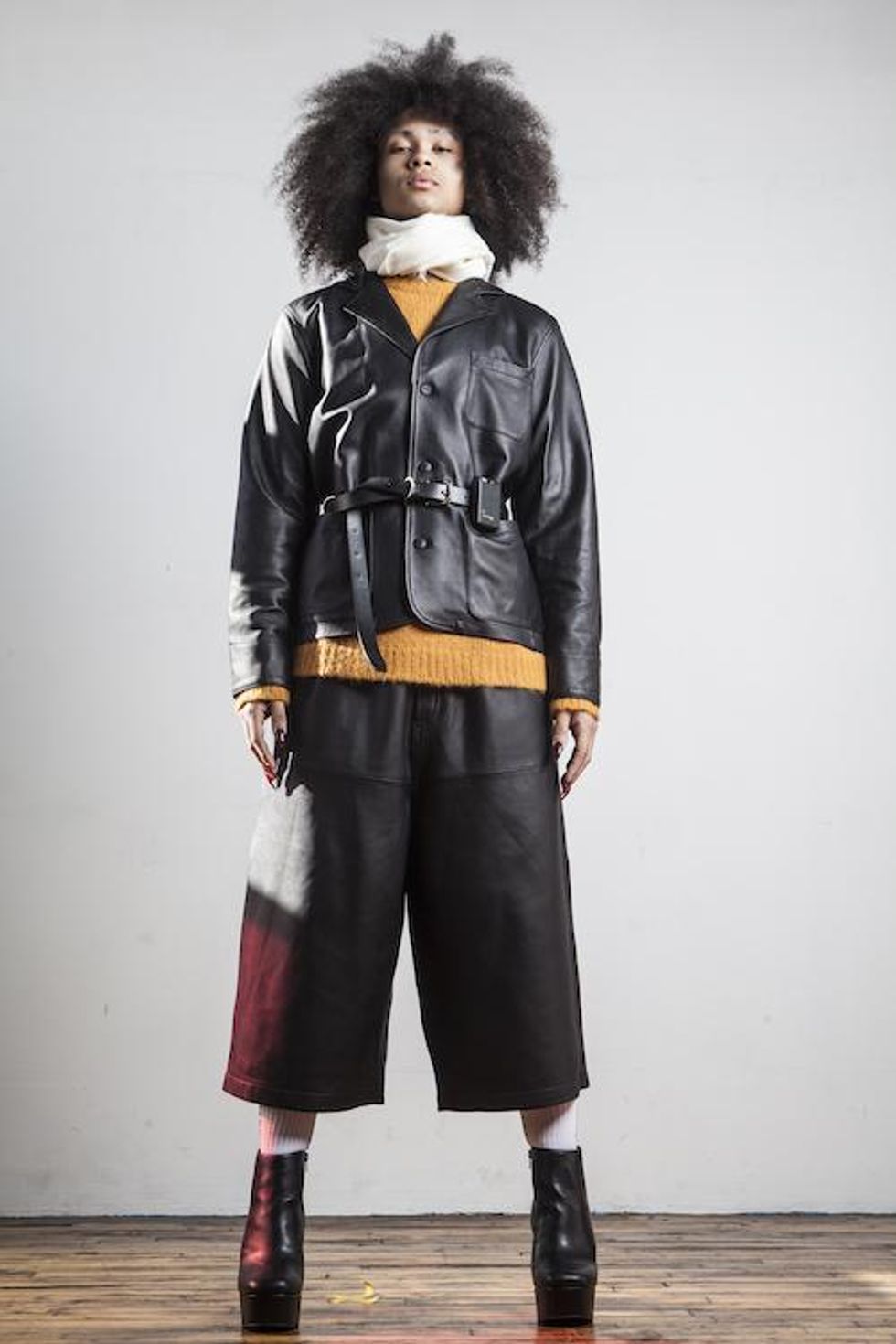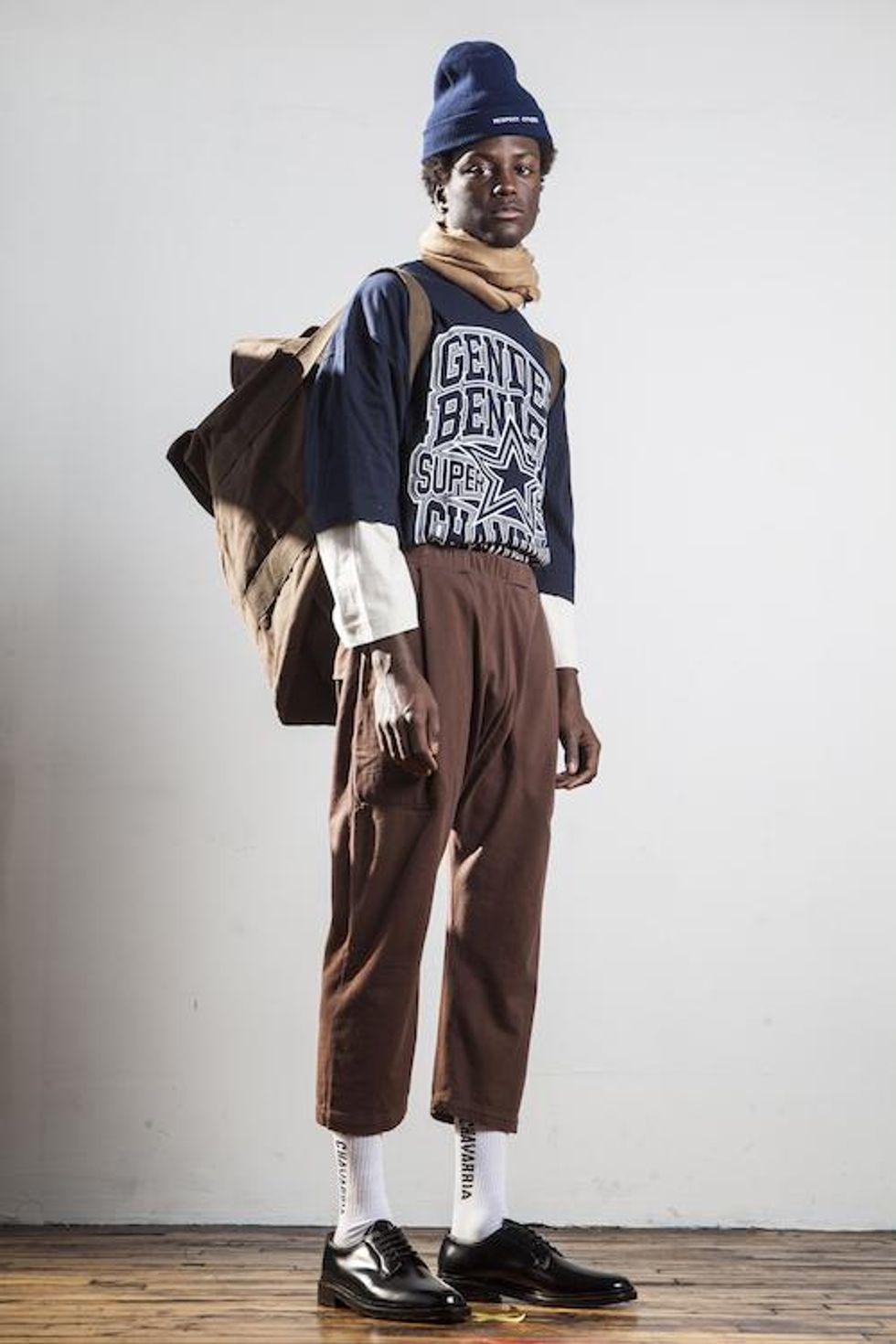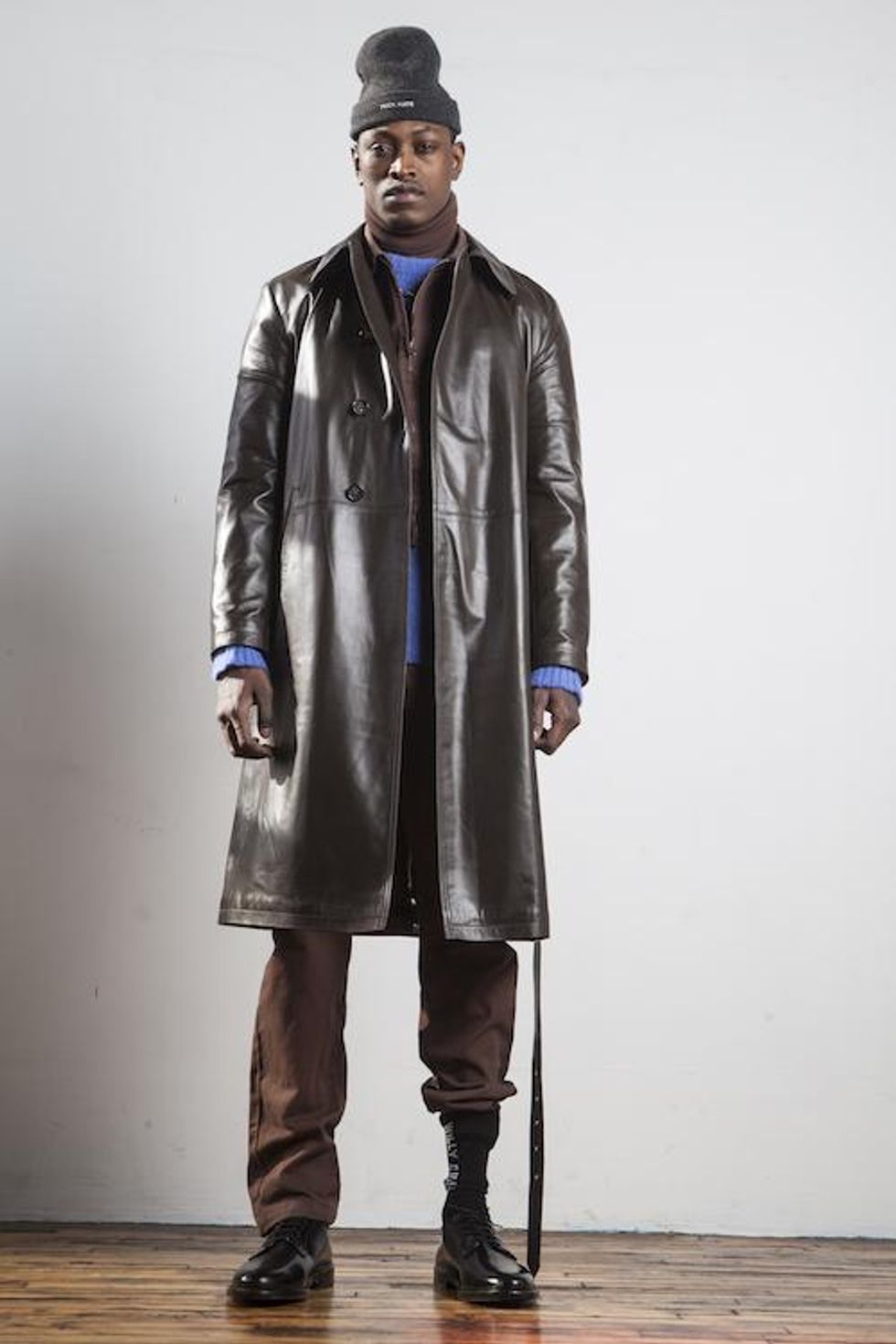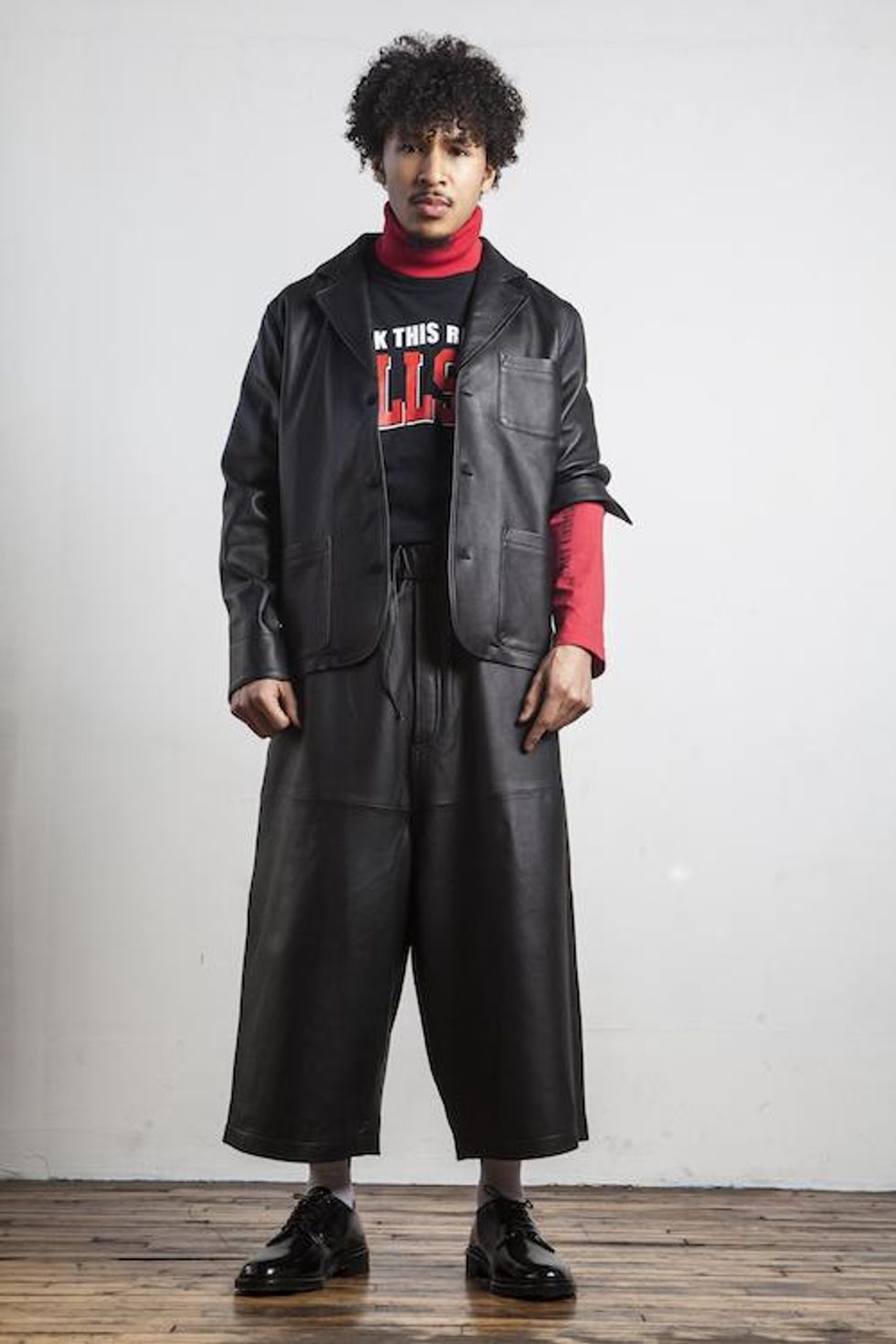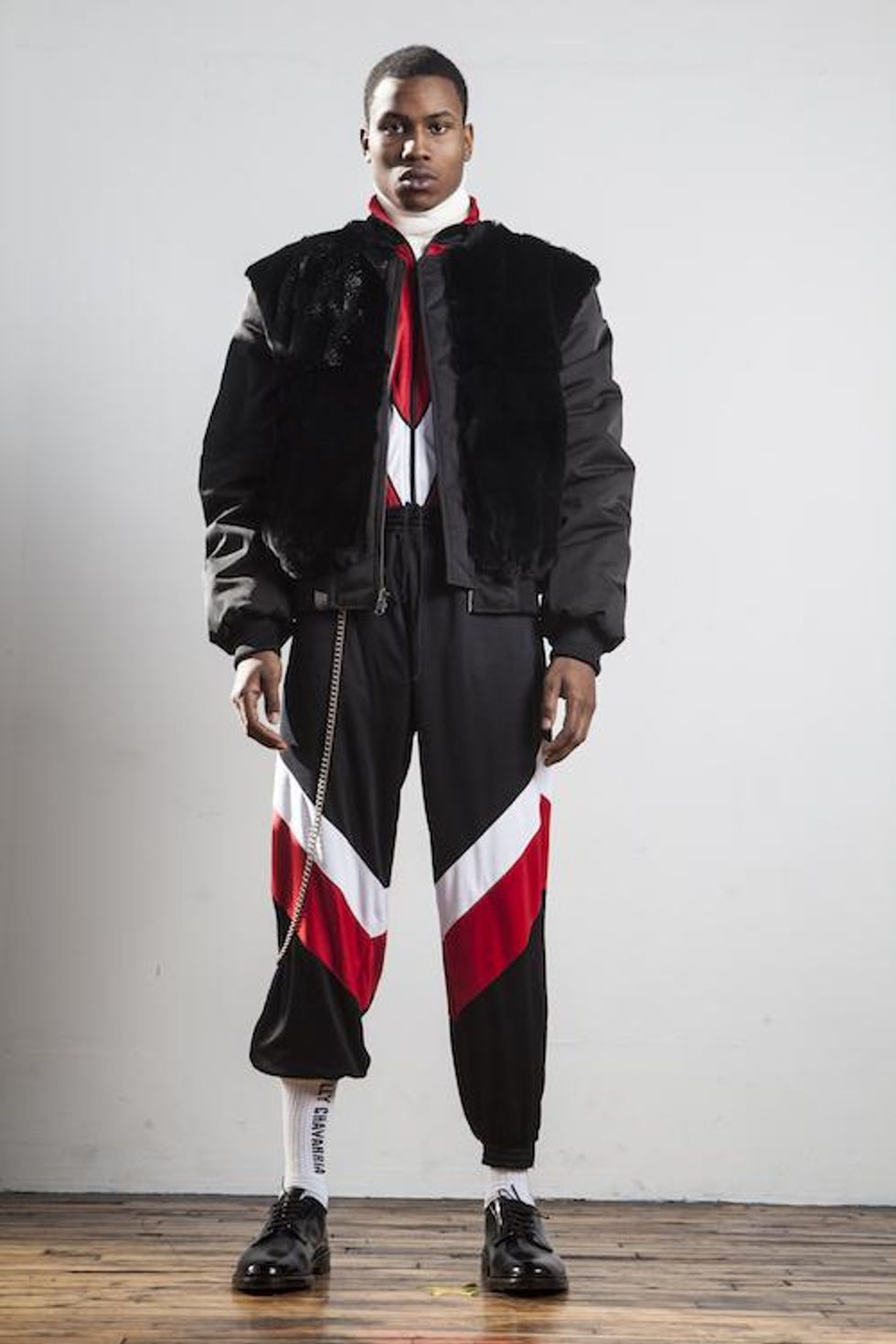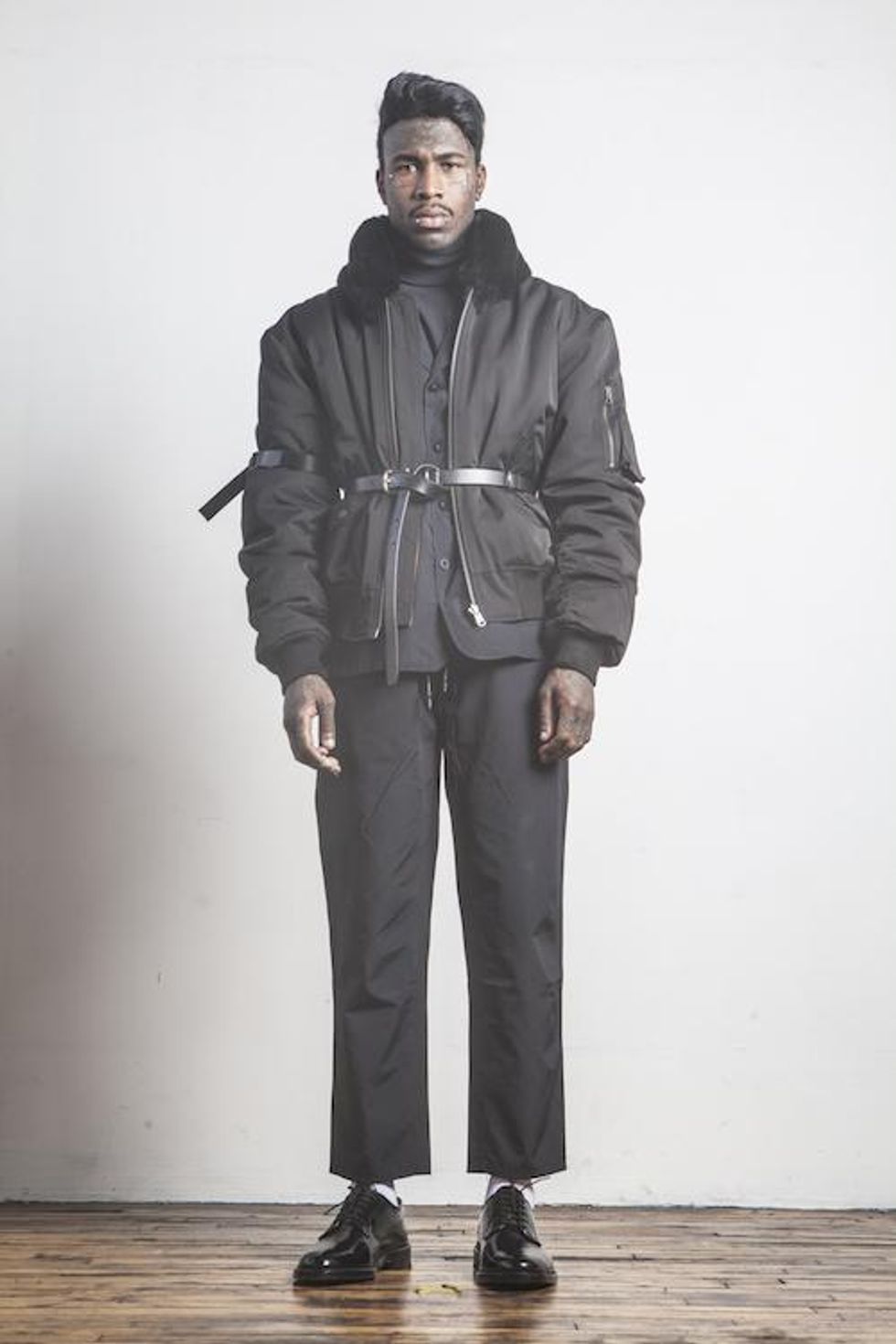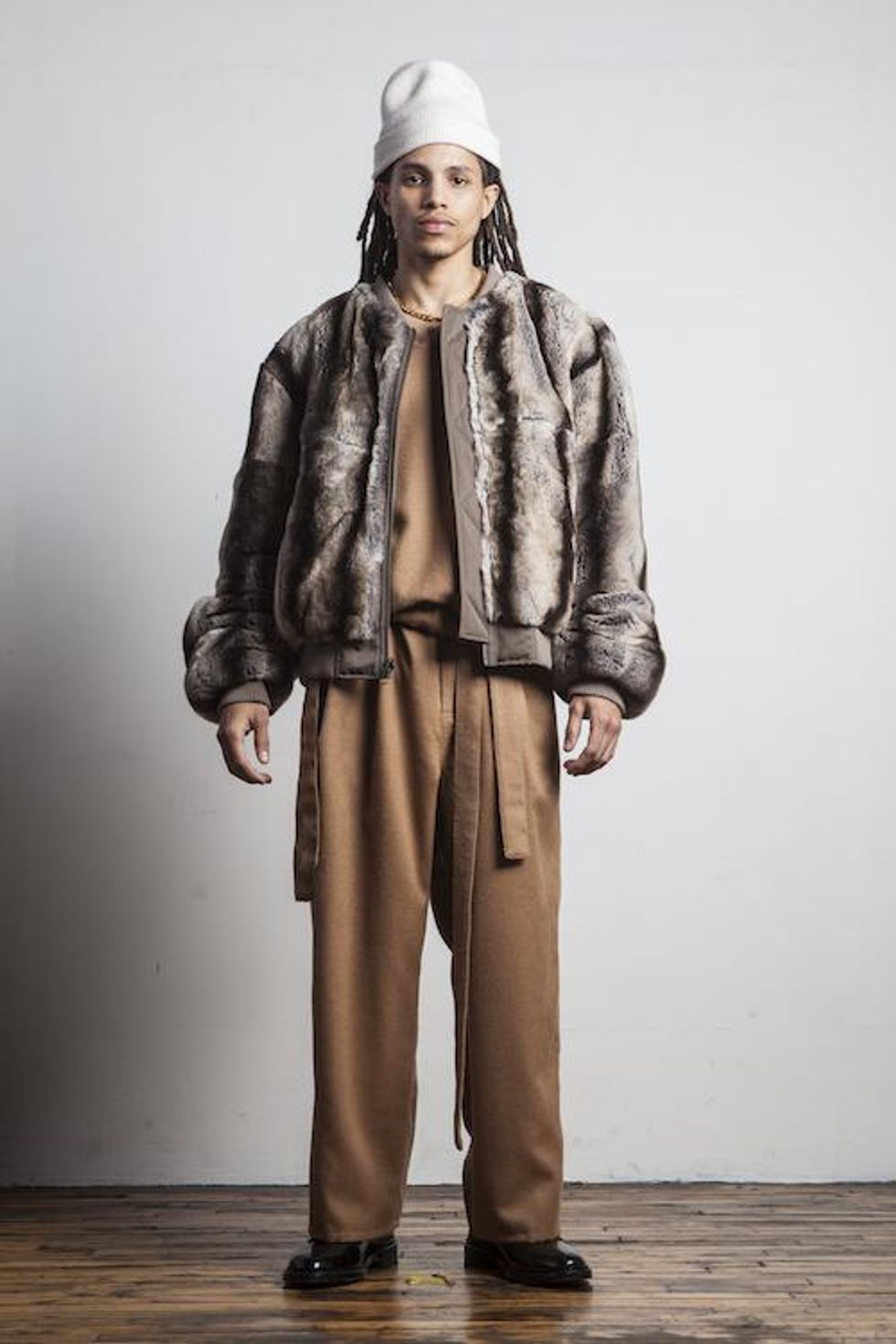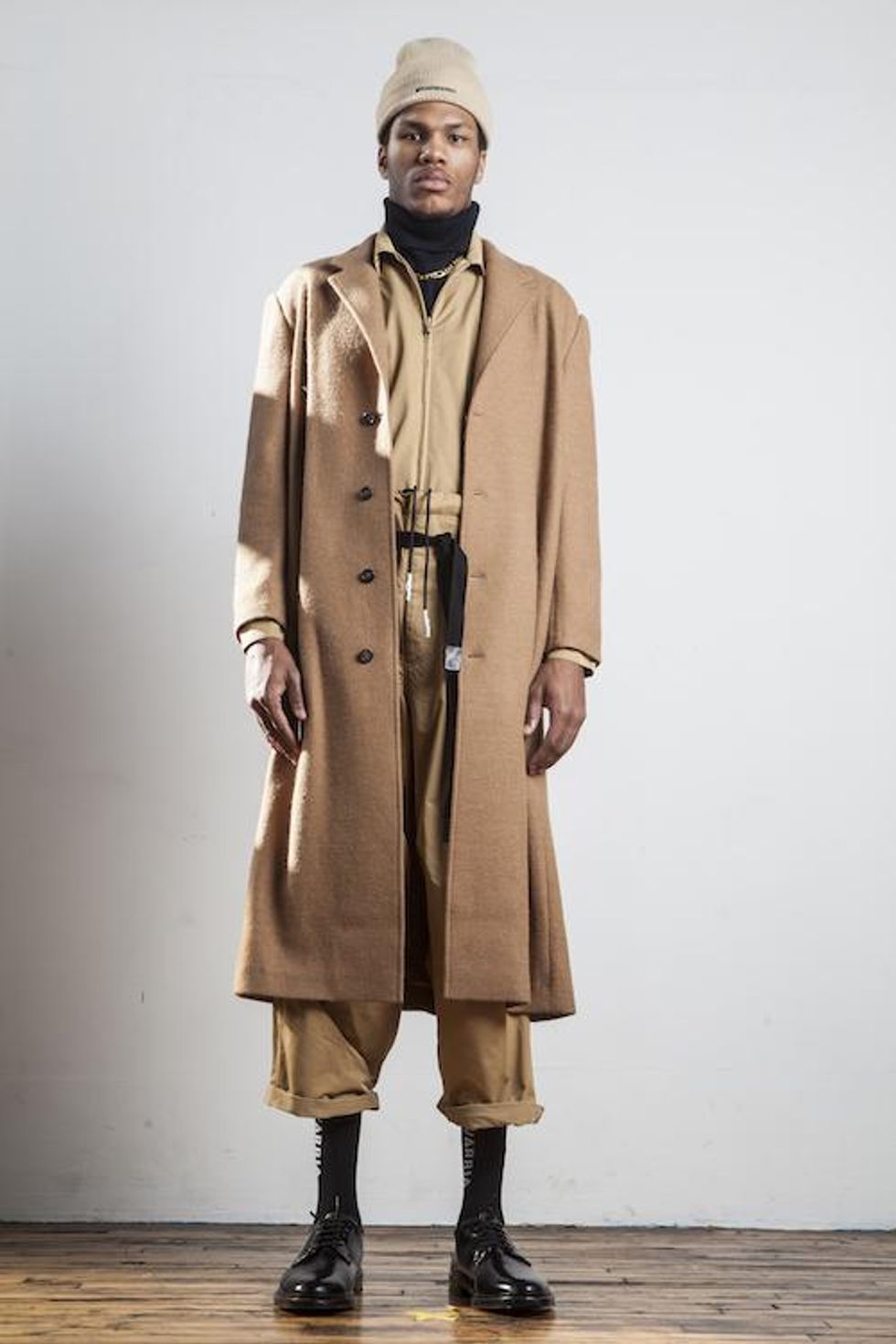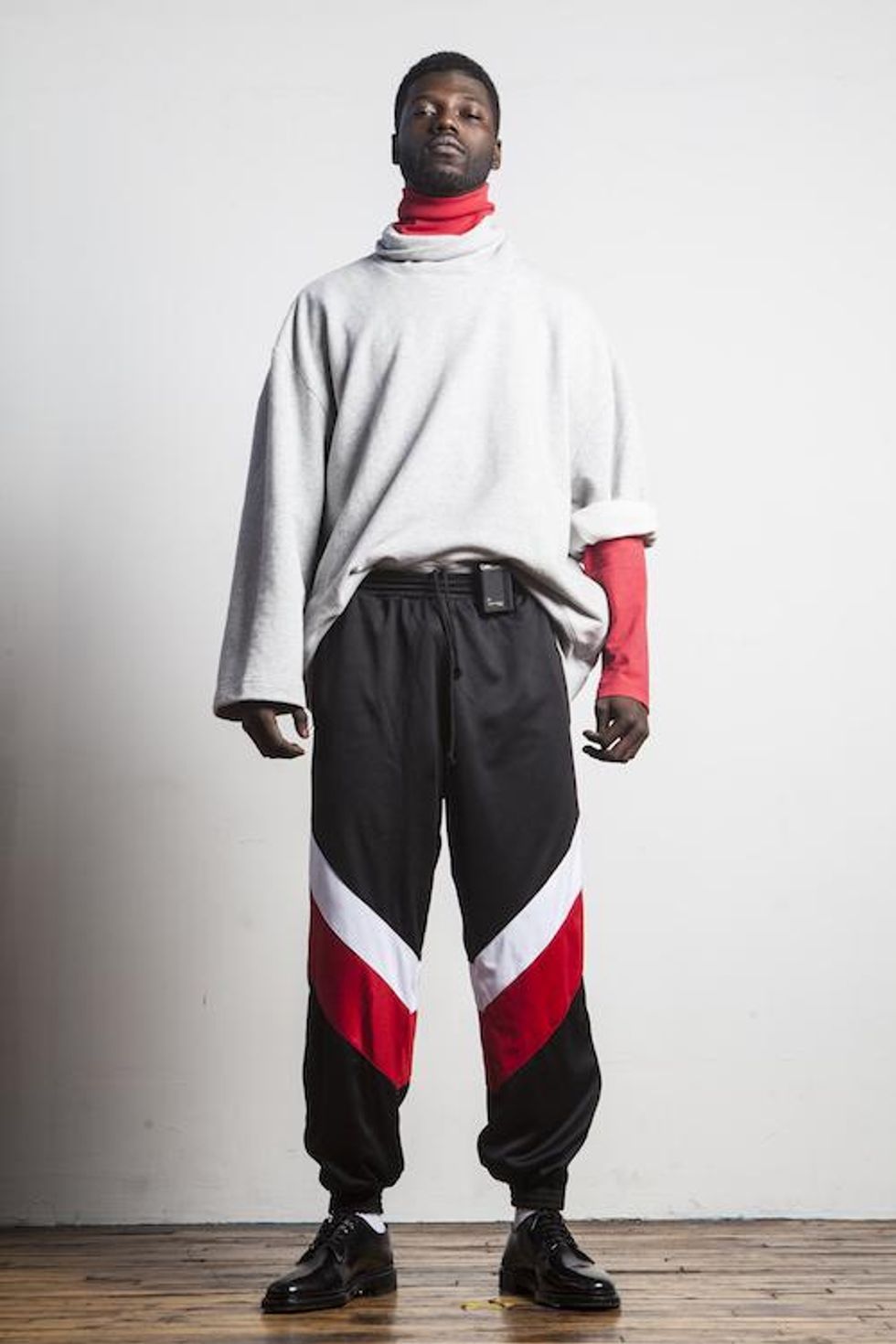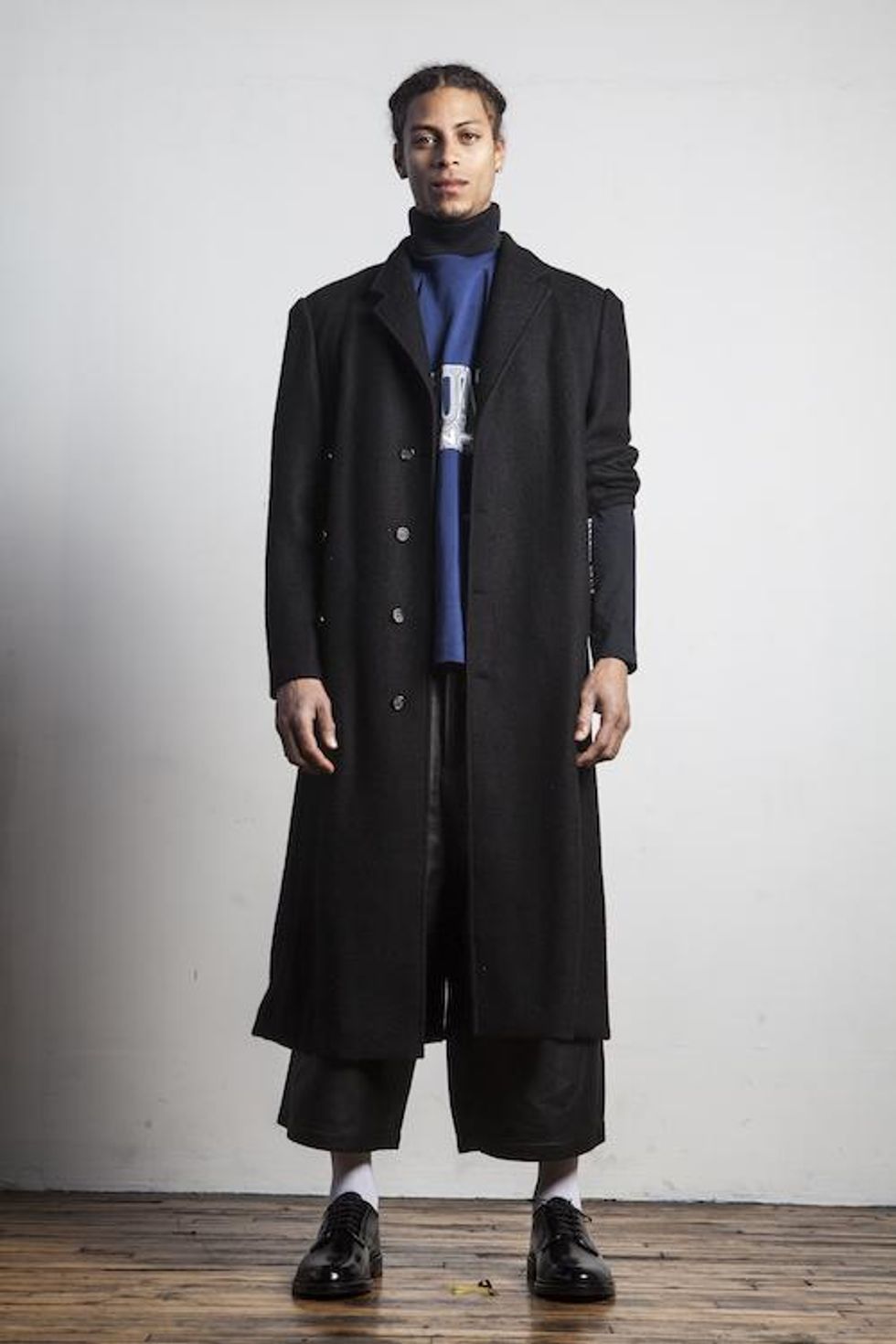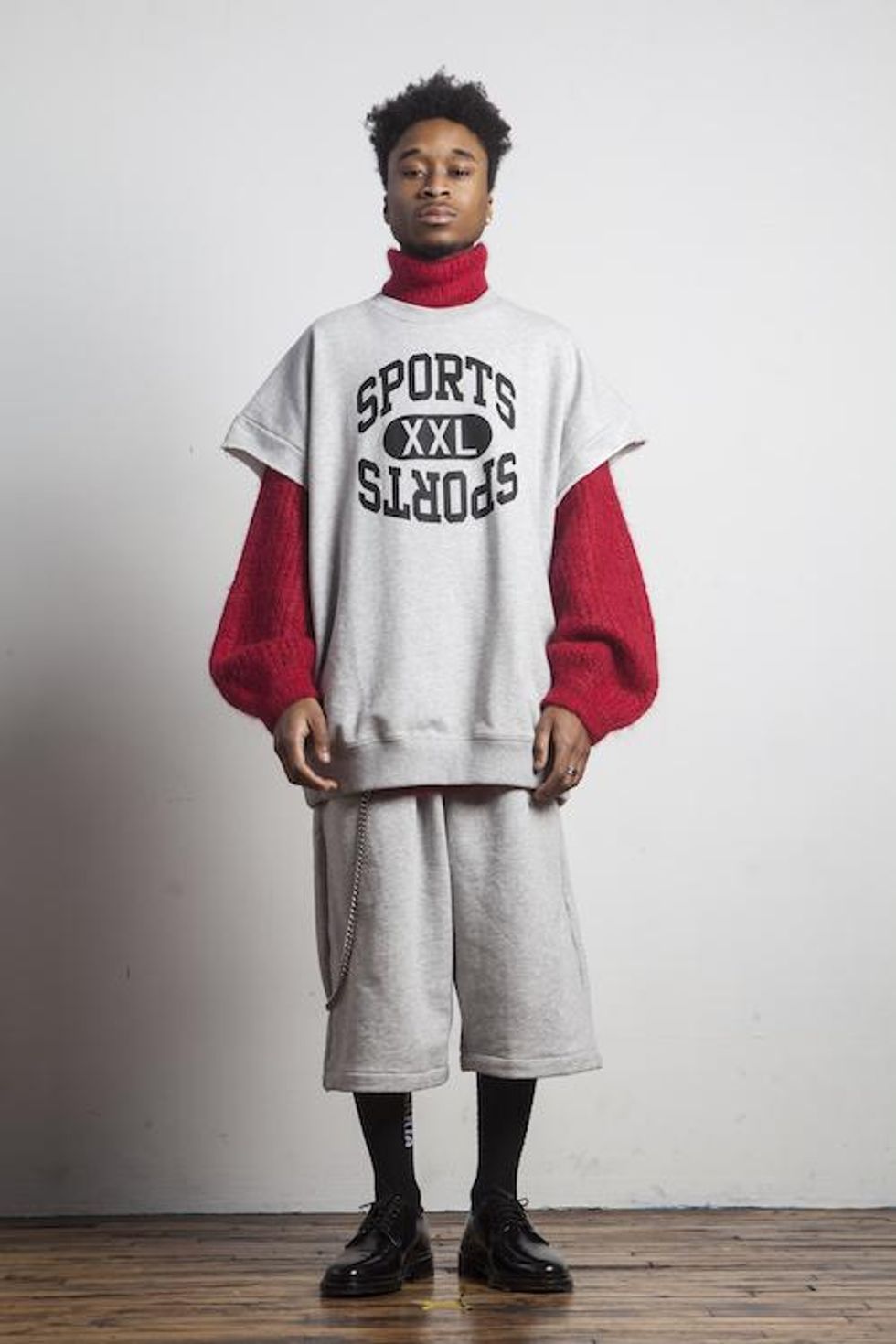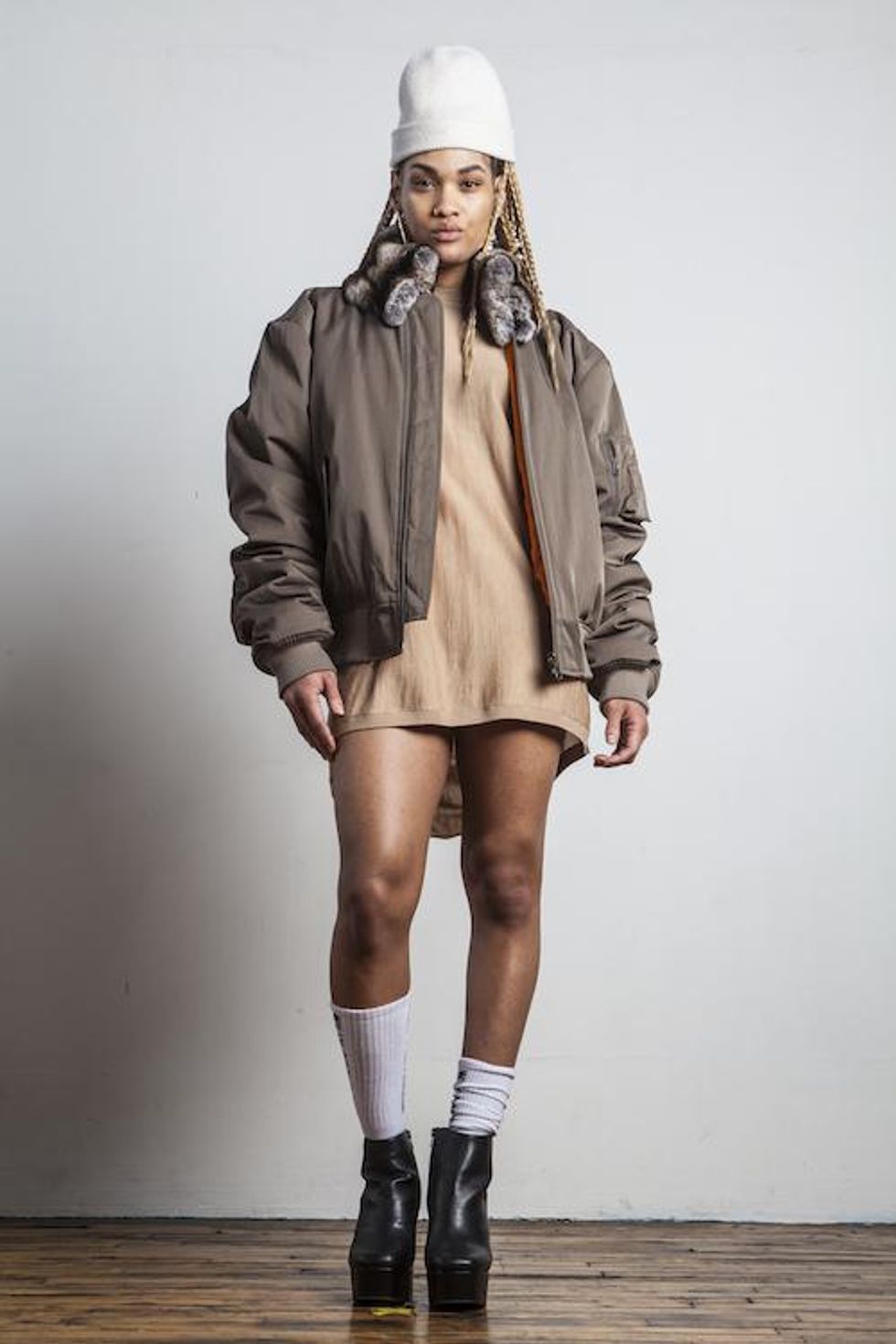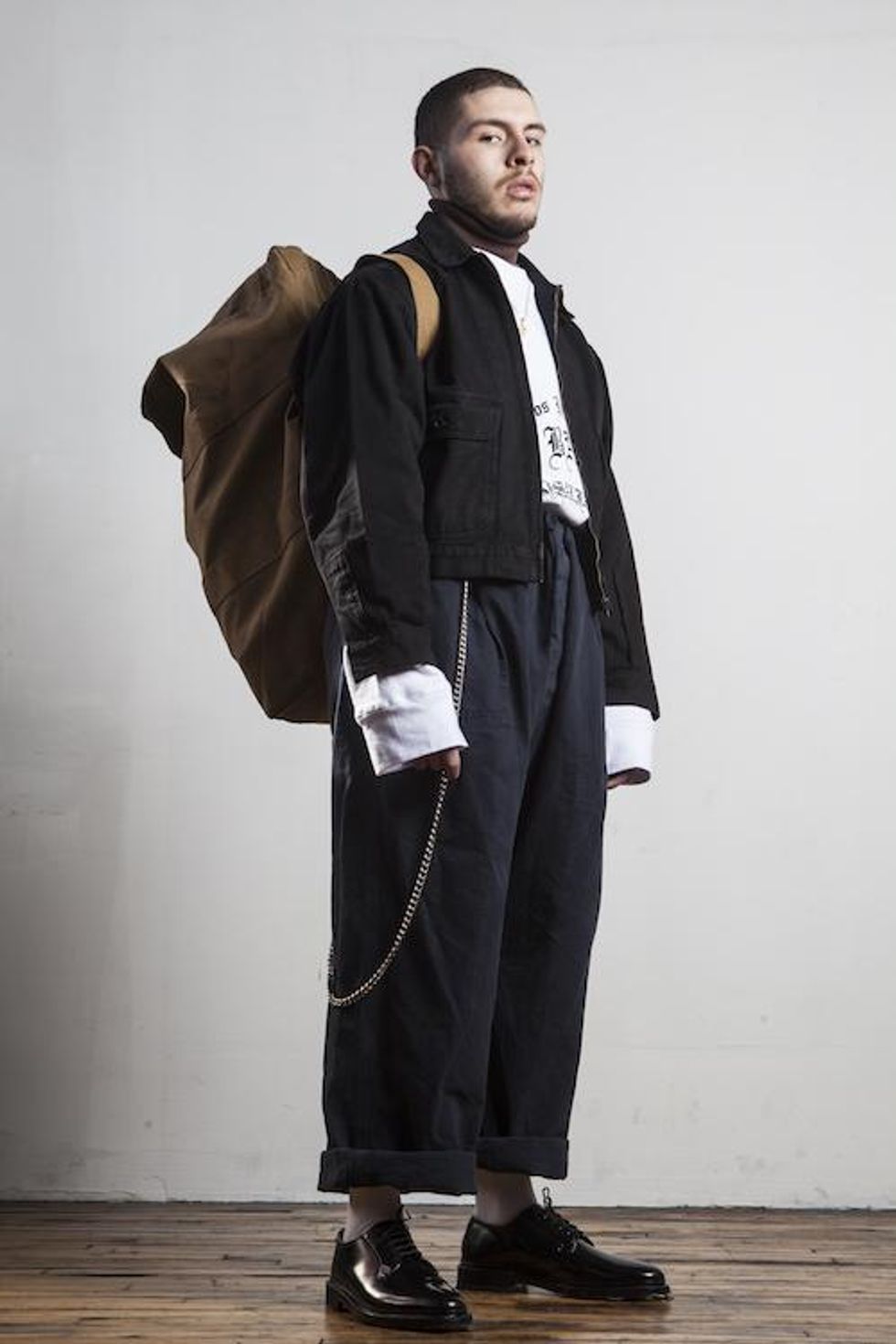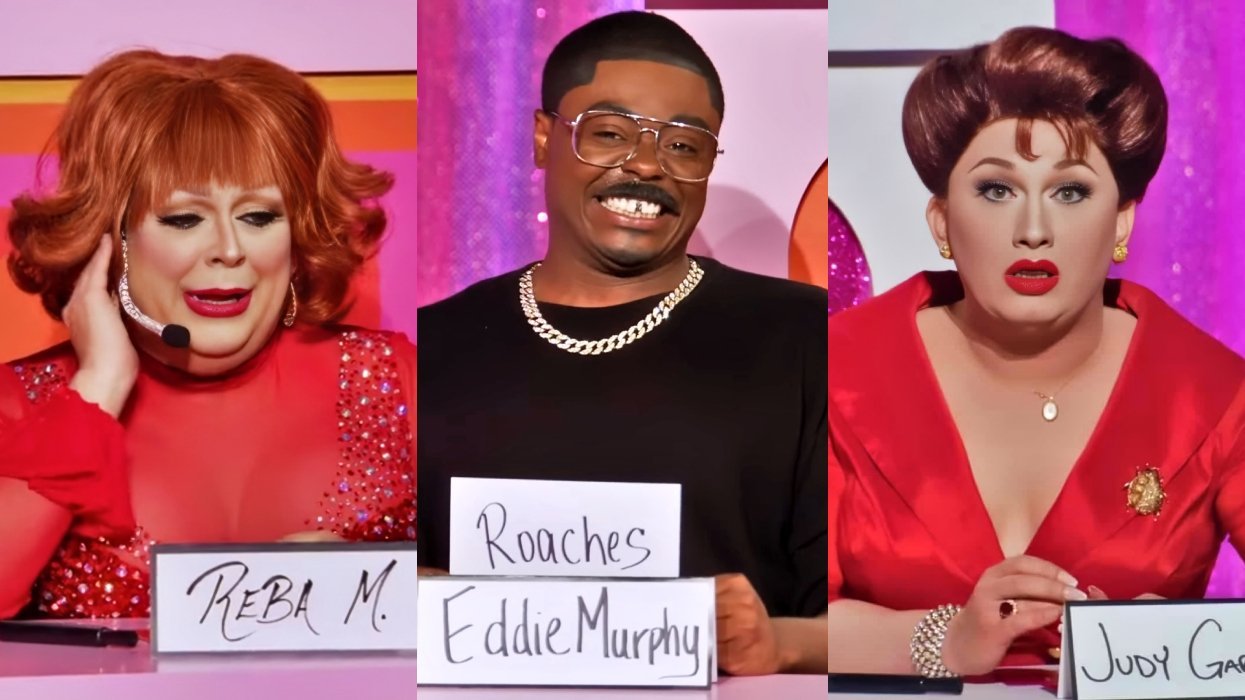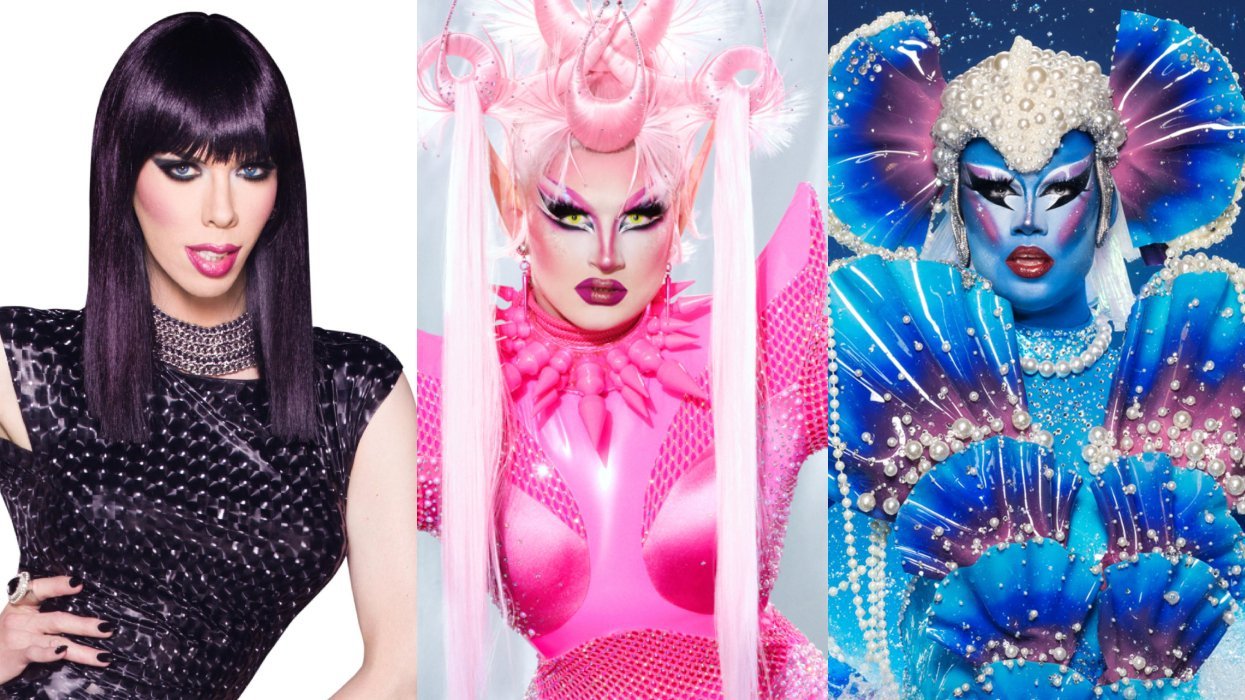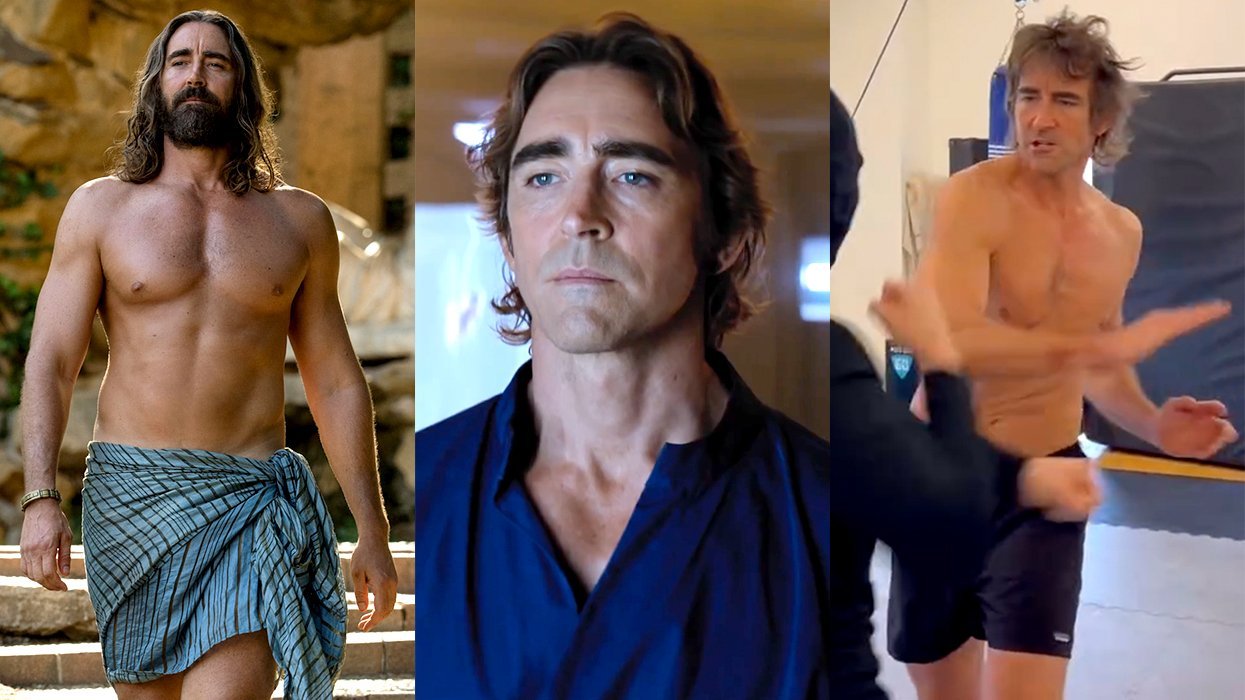CONTACTAbout UsCAREER OPPORTUNITIESADVERTISE WITH USPRIVACY POLICYPRIVACY PREFERENCESTERMS OF USELEGAL NOTICE
© 2025 Pride Publishing Inc.
All Rights reserved
All Rights reserved
Scroll To Top 













By continuing to use our site, you agree to our Privacy Policy and Terms of Use.
Willy Chavarria Fall '17 (MORE+ For Review)
Willy Chavarria's street cast models stood tall, facing outwards inside a chain link fence, as spotlights cast them in a dark, dramatic glow. Together, they looked infallible, like a crew you'd want in your corner at all times--their faces serious and arms down at their sides. A deep warbling instrumental of Death Grips' grinding track, "Guillotine," filled the space, while a man outside the fence circled them slowly.
"All my clothes are inspired by the streets," said Chavarria, a queer Irish-Mexican designer from Fresno, California. "I don't mean that to be a cliche, but you know I don't come from a wealthy background, so I take references from my upbringing and put those into a high fashion sensibility. My models are real people--these clothes are for real people."
A week ago, Chavarria announced he'd be casting for his fall '17 presentation, posting to Instagram the criteria for his non-models: "Mexican, fearless immigrant, black and proud, beat to the Gods, fierce swag, intolerance for hate, kind-hearted"--a list of standards that admirably strayed from the superficial expectations of typical brands during New York Fashion Week.
"When we cast for this show, I let everyone know that it's an extremely gay-friendly, black-friendly, fat-friendly, accepting clothing line," Chavarria said. "All these fierce people came in and their personalities are so fucking cool--like Ava-Alex Dorian Grey, who's only been transitioning for a few months and Marcus Branch, who's Mexican and just moved here from Denver. I love the pride these people have. My appreciation for fashion is through great style, which is attributed to the people who take clothes and make them look badass."
Of his fall '17 collection, titled "Harder," Chavarria said he was influenced by the California streets, pulling from marginalized subcultures and elevating those identities through fashion. The lineup was noticeably political, though he says he didn't anticipate our world being in such turmoil when he began designing his latest work. Beanies were embroidered with relevant phrases like "Fuck Hate" and "Respect Others," while Chavarria's clothing referenced historically oppressed movements, such as Black Panthers, as well as '80s Harlem rapper Kurtis Blow.
"I thought a lot about Pachuco culture," Chavarria said, referencing the '40s Chicano subculture where Mexican-Americans wore zoot suits and formed gangs. "They essentially created the original baggy pant." This Pachuco influence manifested into tailored overcoats and jackets in stiff leather, and Chavarria's boxy wide-legged pants--a longtime staple for the brand. Chavarria's admiration for "Cholas" was also felt in the styling, as sportswear collided with streetwear throughout.
"So many of the styles we see in fashion today came from the streets," the designer said. "And it's important we give credit where credit's due."
